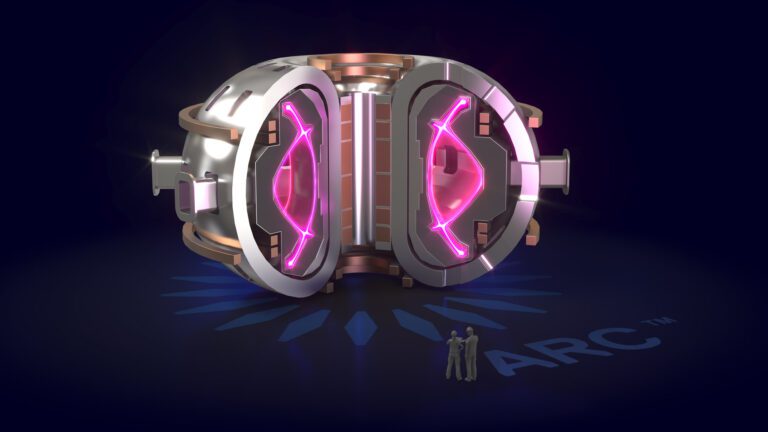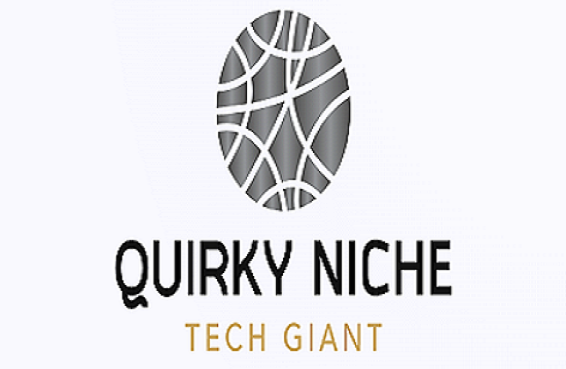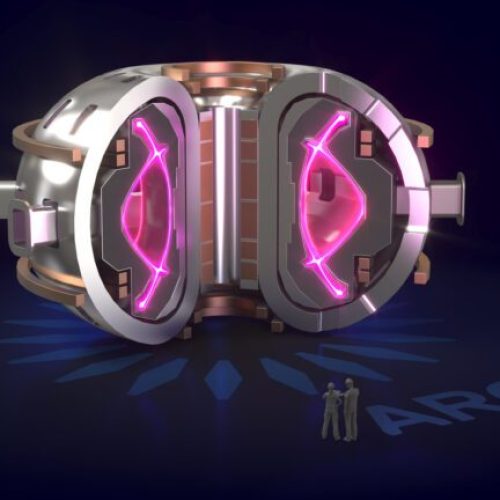The United States is about to make history in the production of energy: it is going to launch the world’s First Commercial 400MW Nuclear Fusion Plant. Virginia’s governor and other state officials announced on Dec. 17 that the commonwealth has a plan for what would be the world’s first nuclear fusion power plant. Commonwealth Fusion Systems, meanwhile, revealed on Tuesday plans to erect a 400-MW facility on a 100-acre site in Chesterfield County’s James River Industrial Park. This pioneering facility is going to power approximately 150,000 homes, marking a giant leap toward clean, sustainable, and virtually limitless energy.
Massachusetts-based CFS, which was launched in 2018 and whose CEO Bob Mumgaard was interviewed by POWER in 2020, said it conducted a global search for a suitable location for the project. The company will lease the land from Virginia-based Dominion Energy, which originally had planned a natural gas-fired power plant at the site.
“Fusion is the process that takes place inside stars. It’s the most common process in the universe,” Mumgaard said Tuesday. “It’s the one that creates all the heat and light. On Earth, when we can get it working, we will use it to make electricity in fusion power plants. That electricity will be clean, it will be [reliable] and safe.”
Virginia Gov. Glenn Youngkin highlighted the project’s job creation and economic development potential during the Tuesday announcement. “Commonwealth Fusion Systems plans on building the world’s first grid-scale commercial fusion power plant in the world, full stop, and it’s going to be right here in the commonwealth of Virginia,” said Youngkin during a presentation Tuesday in Richmond. Youngkin said the CFS power station would bring billions of dollars in economic development, along with creating hundreds of jobs.
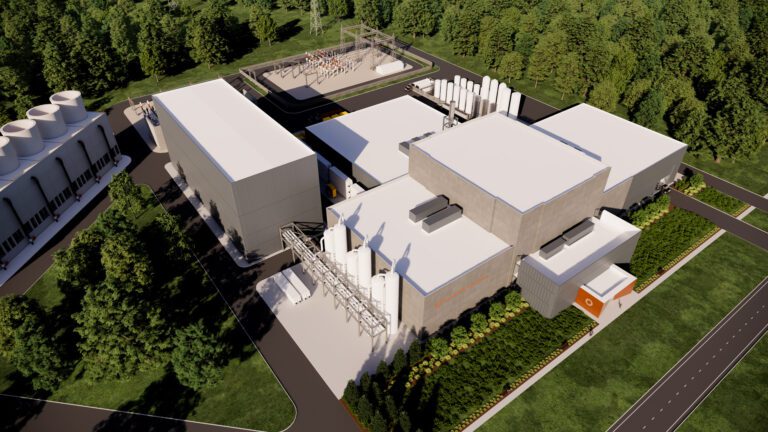
“As our customers demand more reliable and carbon-free power, we recognize the importance of offering diverse energy generation solutions. In this spirit, we are proud to support Commonwealth Fusion Systems (CFS) in their innovative efforts,” said Dominion Energy Virginia President Edward H. Baine.
CFS is pushing the SPARC demonstration plant in Massachusetts, which is a step toward the deployment of ARC technology at the Chesterfield facility. This revolutionary project will be supported by Virginia from the Virginia Energy Clean Energy Innovation Bank to the tune of $1 million; Chesterfield County has also allocated $1 million. Further, the plant equipment are exempted from sales and use tax, and significant funding is also being given by the U.S. Department of Energy (DOE).
With over 1,000 employees in its workforce, CFS is the world’s largest private fusion company. It has managed to raise more than $2 billion to advance the commercialization of its fusion technology. From being a spin-off from MIT, CFS continues to be at the forefront of innovations in fusion.
Operation Expected by Early 2030s
Officials have said the power plant may start operations by the early 2030s. Fusion technology mimics the process that makes the sun produce energy, promising a cleaner, more sustainable, and even limitless source of energy compared to traditional fission-based nuclear power plants.
“You won’t need a pipeline to bring the fuel in, or a smokestack for the exhaust,” Mumgaard said, referring to the efficiency and environmental benefits of fusion.
This announcement indicates that fusion is no longer something that’s far off. it’s becoming a reality,” Sehila Gonzalez de Vicente, Global Fusion Director at Clean Air Task Force, said. “Fusion has the potential to revolutionize our energy systems by providing clean, firm power.”. The deployment of this plant represents a big step forward to meeting our climate goals as it addresses the growing demand for electricity from data centers and more broadly, the artificial intelligence and high-performance computing ecosystem. But to reach full potential will require proper regulatory frameworks to attract investment and facilitate more projects of this nature. A supportive regulatory environment will make sure that the development of fusion energy is both safe and efficient and also positions the U.S. as a leader in fusion energy innovation across the globe.
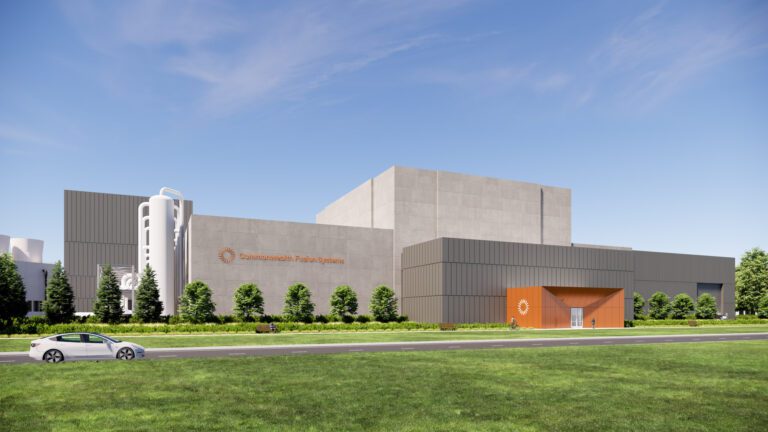
In 2022, a team of scientists and researchers at Lawrence Livermore National Laboratory in California successfully achieved a record-breaking feat in fusion technology: achieving a net energy gain from a fusion reaction. This historic experiment used lasers to ignite the fusion reaction.
The technology used in CFS is quite different. It does not involve lasers but instead uses a tokamak, a doughnut-shaped device designed to hold and fuse molecules under intense conditions.
CFS said that it will build the power plant on a 25-acre location in Chesterfield, Virginia. This facility will not only fulfill the energy needs of the region but also be an important component in the statewide network of energy-intensive data centers. Governor Glenn Youngkin said, “It’s a pretty reasonable assumption that the growth in data centers in Virginia will very happily take the power that is generated at this plant.”
CFS Will Pay for Project
The governor said CFS will fund the project, and said that costs would not be passed on to Virginia electricity customers. Officials said the facility will function as an independent power producer and would sell its electricity to specific offtakers through power purchase agreements. It also may sell power directly into the regional PJM Interconnection market.
CFS said it is looking for customers to purchase power from the facility. The company’s chief commercial officer, Rick Needham, said the company has “been in lots of conversations with potential customers.
According to a recent report by a Virginia legislative group, energy demand from the state’s data centers—currently about 10,000 MW—could surge to 30,000 MW by 2040, contingent on the availability of transmission infrastructure.
Dominion Energy and Appalachian Power, Virginia’s largest utilities, are looking at small modular nuclear reactors (SMRs) to meet the growing energy demands. Dominion is also advancing renewable energy and natural gas projects.
Rip Sullivan, Virginia state lawmaker, plans to introduce legislation that will define fusion energy in the state code. The Virginia Clean Economy Act (VCEA), passed in 2020, aims to decarbonize the state’s power grid. Fusion will be considered “zero-carbon electricity” under the VCEA.
“Since the VCEA’s passage, we have succeeded in driving energy innovation in the commonwealth, and today marks another important step in what has been a remarkably successful effort—a step that would not have been possible had Virginia declined or abandoned the opportunity and responsibility it took to lead in clean energy,” Sullivan stated.
According to officials, the fusion project was approved because of a decision by the U.S. Nuclear Regulatory Commission that said that the technology of fusion does not require federal licensing, unlike fission technology. State officials can allow fusion projects, but permits from local, state, and federal authorities will still be required. The Chesterfield project also needs a conditional-use permit, and local review is expected next year, with possible approval by next summer.


